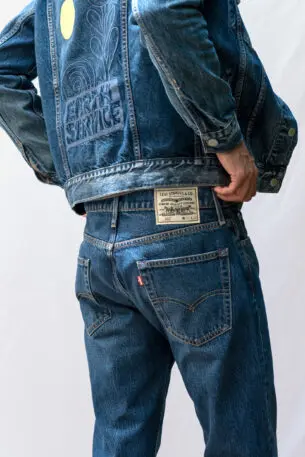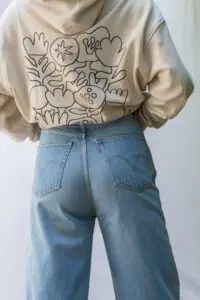Growing the cotton for a typical pair of jeans uses 2,500 liters of water, often in areas facing water shortages. And when the jeans wear out, they’ll probably end up in a landfill, like most clothing. Using recycled material shrinks that total environmental footprint, but traditional fabric recycling can lower the quality of the next iteration of the clothing. To change the total cost of the lifecycle of a pair of jeans, Levi Strauss has been working on a better way to recycle its iconic product.


The brand partnered with Renewcell, a Swedish startup that is one of a handful of companies pioneering a new type of fabric recycling. The technology fixes the problems with clothing recycling by breaking cotton down into the basic building block of cellulose and then creates long filaments that can be woven into new material, called Circulose, that’s soft and durable. “It really ups the opportunity for fiber and garment recycling to become legitimate displacement opportunities to wean ourselves off the need for huge quantities of first-generation cotton,” Dillinger says.
In 2020, Levi Strauss started selling its first jeans made with a blend of the material. The jeans—the winner of the consumer products category in Fast Company‘s 2021 World Changing Ideas Awards—were also carefully redesigned to remove other materials, such as polyester thread and a leather tag, so that they can ultimately be completely recycled themselves in an ongoing loop. “Hopefully, in perpetuity, these materials can retain their value and draw down the impact from virgin material,” he says.
Recognize your brand’s excellence by applying to this year’s Brands That Matter Awards before the early-rate deadline, May 3.
